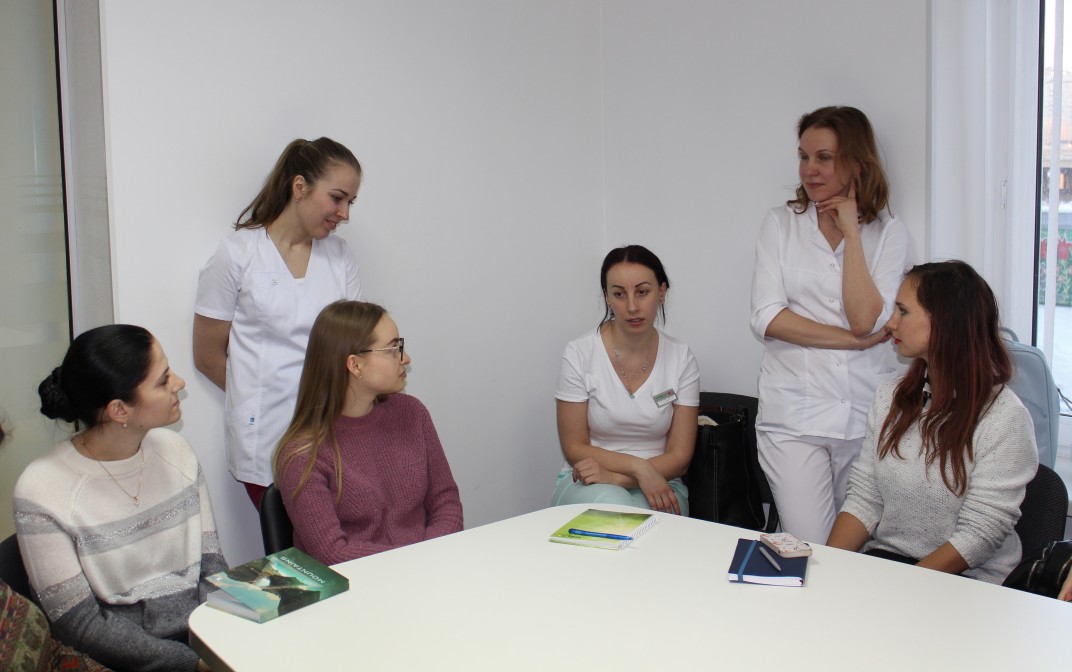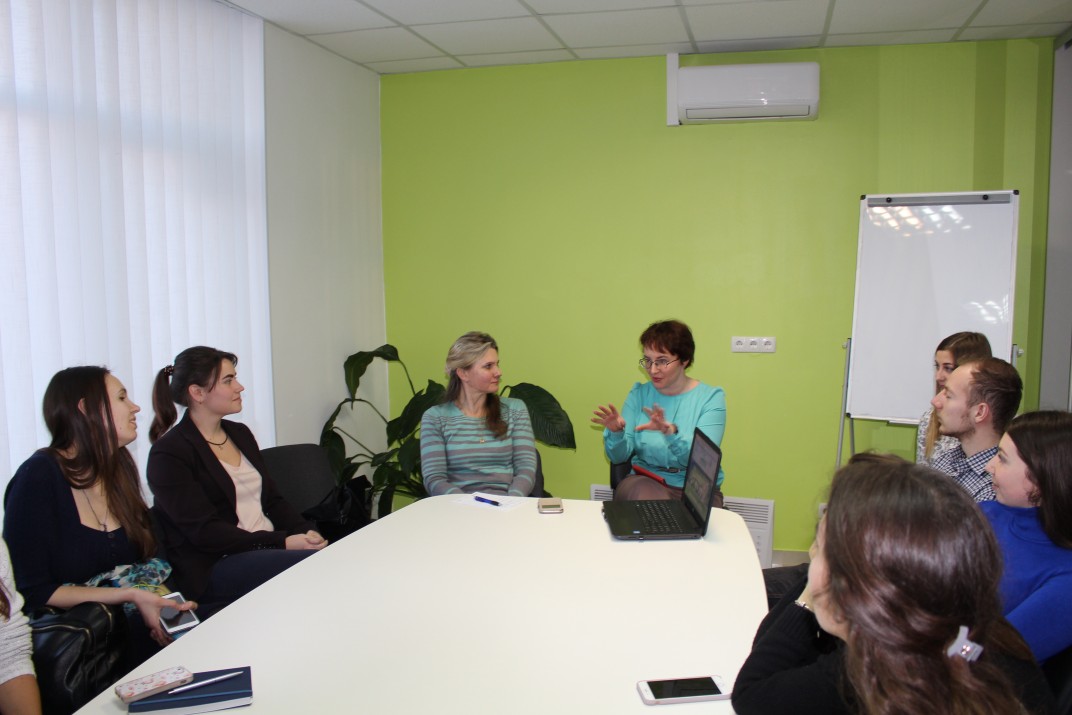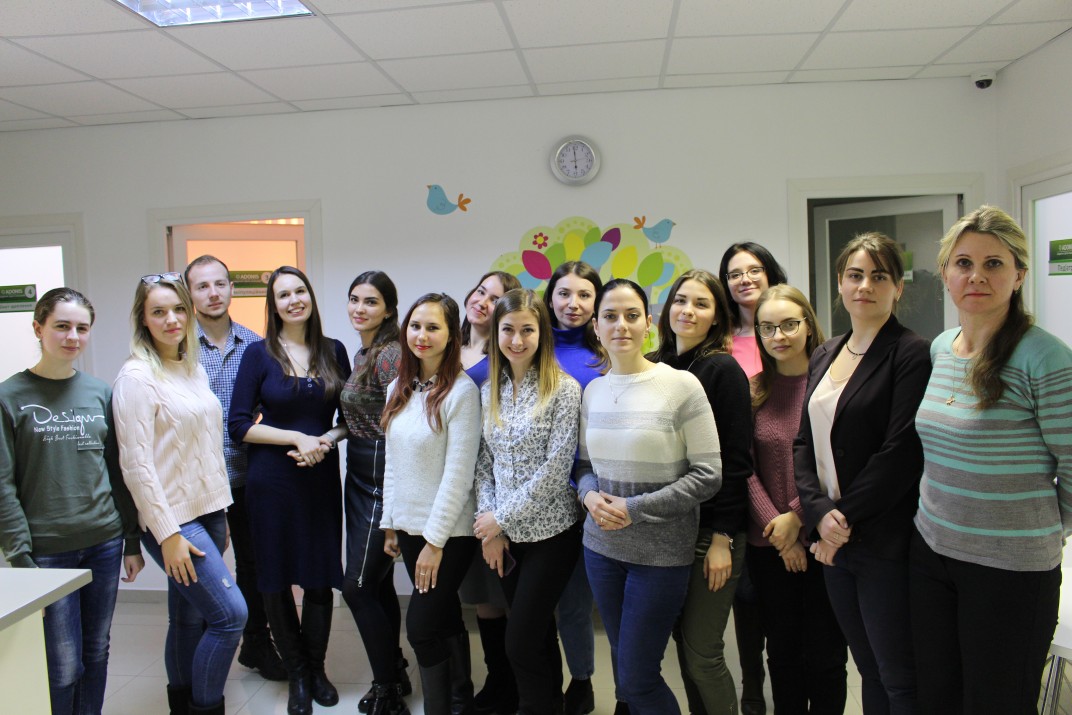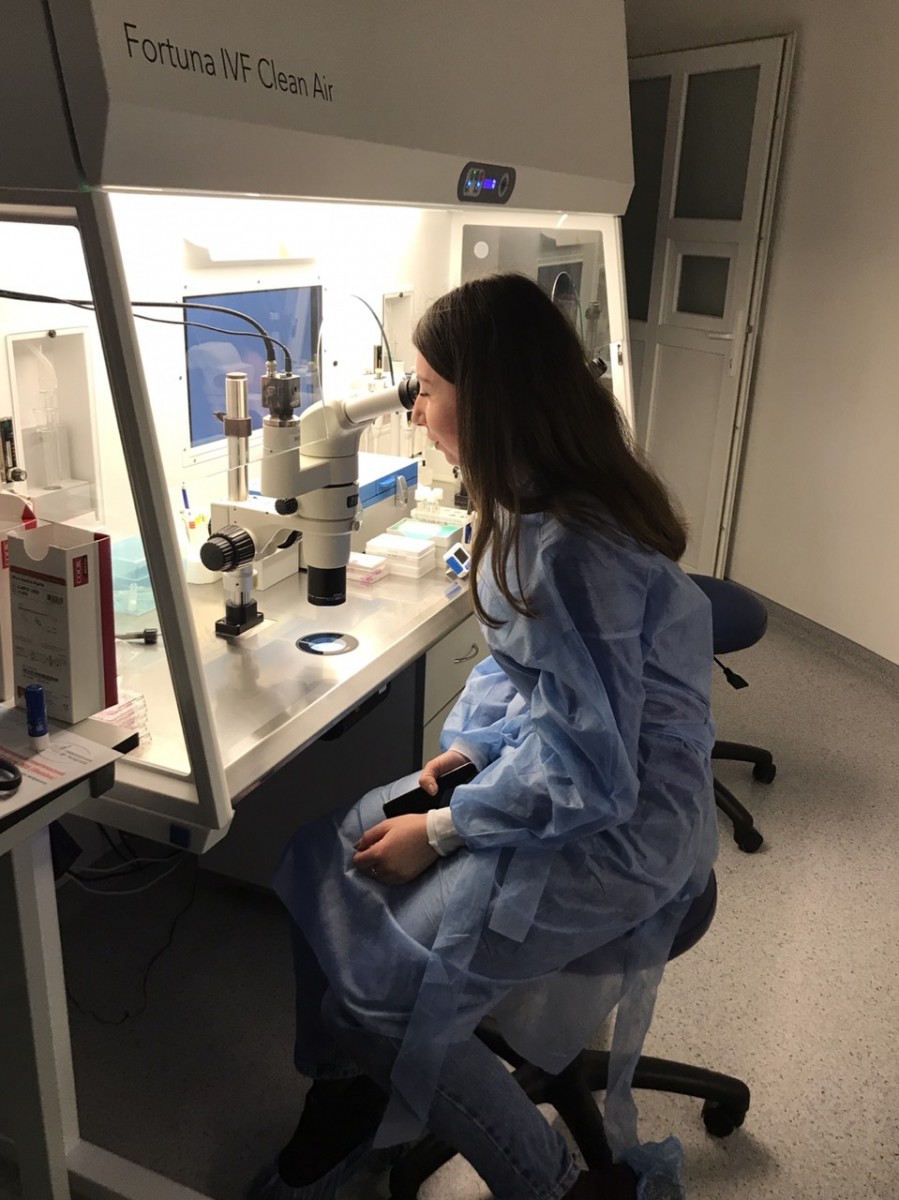THE STUDENTS-MEMBERS IN CLUB AT DEPARTMENT OF OBSTETRICS AND GYNECOLOGY NO 2 GOT ACQUAINTED WITH MODERN MEDICAL TECHNOLOGIES FOR TREATMENT OF INFERTILITY AT FIELD MEETING
The regular meeting on topic “Treatment of infertility: variants for solution of problem” took place on 22, March, 2018 under supervision of Candidate of Medicine, assistant Skuriatina N.H. – head at SSC at department of obstetrics and gynecology No 2.
The infertility is the important component in general medical demographic problem, which unites a number of factors from social economical, behavioral, genetic, natural climatic, ecological genesis. The urgency of problem on infertile marriage is indisputable under conditions for reduction in level of birth rate, high level of total death rate, economical instability, low level in social provision of population and inaccessibility of qualified medical aid. However, with development of fertility science, it is possible to solve this problem, now there are the auxiliary reproductive technologies, which allow the spouses feeling the joy of paternity. The auxiliary reproductive technologies (ART) are the methodologies for treatment of infertility, at which the manipulations with reproductive cells (ovules, spermatozoon), separate or all stages in their preparation, processes for fertilization and development of embryos until their transfer to the uterus of woman in vitro. These methodologies are applied when the occurrence of pregnancy by natural way is impossible due to severe or irreversible changes in reproductive system of one from spouses. This class was planned as the field session namely for acquaintance with work of fertility specialists and was held on the base of division for reproductive technologies at clinic “Adonis”. The class was held together with fertility specialist Kochet Yu.S. and head at department of embryology Bysova M.Ye., during which the practical aspects of DRT, technique for performance of EKS were described, the possible problems that appear during their performance were considered. The special attention was paid to the psychological condition of such patients and peculiarities to render the medical aid to them. The communication of specialists and students, lasted for 4 hours, during which the employees of clinic shared not only with theoretical knowledge with club members, answered many questions but got acquainted with the “core of reproductive center” – laboratory of embryology. The club members got acquainted with preparatory stages (preservation and preparation of embryos for transfer) in DRT. The class made the extraordinary impression on club members. Taking into consideration the rapid development of fertility science and embryology in modern world, this knowledge will not acknowledge their mental outlook but will assist to the professional growth in the future.
Department of Obstetrics and Gynecology No 2







